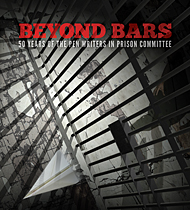14 Feb 2011 | Index Index, minipost
On 9 February, two separate attacks were launched on a TV station and a radio station in Coahuila. Technician Rodolfo Ochoa was killed in the shooting at TV station Canal 9. The station stopped broadcasting temporarily, but programming has now resumed. Radio station Radiorama has not aired since the attack, which damaged their equipment. In a further incident, the distributor of El Norte and Metro newspapers was kidnapped in Tamaulipas. His captors held him at gunpoint and ordered him to stop distributing the newspapers. They freed him after setting light to the copies he had been delivering. There has been an increase in armed attacks on Mexican media organisations since early 2010.
7 Feb 2011 | Americas, Mexico
Mexico City has introduced a new law that seeks to protect mental health patients. The law, issued in December 2010, will promote the rights of mental patients. The decision by the local city government came just weeks after Disability Rights International released a scathing report on mental health in Mexico which documented abuses against adult patients and the disappearance of children.
The new report uncovered many of the same problems investigators found in institutions 10 years ago. In this study investigators visited public psychiatric institutions around the country, which serve thousands of people and found practices such as abandonment, lobotomies, poorly trained staff, and other abuses.
The New York Times ran a front page story on this investigation. However, few Mexican journalists took notice of the scandal, proving that mental health is little understood in the country. In a 2004 analysis by the Oxaca Mental Health Association, it was noted that two major newspapers, La Jornada and Reforma, only dedicated a few stories to mental health, and those that they reported dealt only with suicide and marital problems, but little with serious health issues.
Dr Carlos Campillo Serrano, the director of psychiatric care for Mexico’s Health Ministry, told the New York Times that he hoped that the report would help generate momentum to improve conditions. “We are attentive to its recommendations,” he said. The budget for mental health has increased to about 2.2 per cent of all health spending, from 1.5 per cent in 2006. According to one study, 9 per cent of the adult population in Mexico between 18 and 65 years old suffer mental problems.
The new legal framework being discussed by the Mexico City government seeks to establish a better treatment for mental patients in Mexico City. It was enacted with assistance and collaboration of nine civic and human rights organisations, including the Centro Nacional de Comunicacion Social, CENCOS, a leading human rights and press freedom organisation.
According to the law, there will be training for high school students on mental health problems, a move to ensure private health plans cover treatment and a public campaign to try to change certain attitudes towards people affected by mental illness
The new law will also protect the rights of patients who are interned in institutions against their will because of advanced mental health problems.
Along with 94 other nations, Mexico ratified the 2006 agreement it is now accused of violating, the United Nations Convention on the Rights of Persons with Disabilities .
Mexico’s first report on its progress toward abiding by the agreement is due this year.
The World Health Organisation estimates that nearly 95 million people with depression and more than 25 million people with epilepsy, living in developing countries do not receive any treatment or care.
However, as the Oaxaca health study cited above said, little will change in assumptions about mental health if the national Mexican news media does not report on it.
25 Jan 2011 | Americas, Mexico
Online social networks will be serious players during the next year’s Mexican presidential elections. Electoral reform pushed through in 2008 means Mexican political parties cannot advertise on television. “That reform has totally changed elections in this country,” says Maria Elena Meneses, an elections and internet expert from university Tecnologico de Monterrey. According to Meneses, because political parties are cut off from such a massive media outlet they will turn to Twitter, Facebook and YouTube in future elections.
Mexico’s electoral reform came after 2006’s presidential election debacle when the presidential candidate for the leftist Democratic Revolutionary Party (PRD), Andres Manuel Lopez Obrador, accused the winner, Felipe Calderon, of the Action Party, PAN, of fraud. Amidst claims of missing votes 1.1m people marched through Mexico city to protest against electoral fraud
Underlying these charges were accusations that the PAN had used television spots that to suggest Lopez Obrador was similar to Hitler.
But the internet also played a key role in 2006. High volumes of hate mail were circulated about all candidates, but most was negative targeted Lopez Obrador. According to a poll, voters received more electoral propaganda disparaging the PRD presidential candidate. On the other side, a computer savvy voter set up a YouTube video that showed dubbed clips of the movie Madagascar in which a computer animated raccoon figure asked for a recounting of the electoral votes. Close to a million viewers watched the clip.
The key claim from the Lopez Obrador campaign was that the 2006 presidential election was manipulated by the various ruling party state secretaries around the country.
In 2009, candidates in the provincial elections for state governorships and congress used Twitter to establish followings, but according to Meneses, they won’t be the only medium in the 2012 elections. “Twitter and Facebook will appeal to the working masses and to youth. The campaign will be dirty — dirtier than it was when it was conducted on television,” claims Meneses.
Part of the problem in Mexico is connected to the fact politicians are not used to having a conversation with voters. “In Mexico, we continue to have political relationships that not vibrant and do not embrace interaction with the electorate” she said.
21 Jan 2011 | News and features
 International recognition offers a degree of protection to investigative reporters. But, writes, Lydia Cacho being in the limelight presents a new set of dilemmas
International recognition offers a degree of protection to investigative reporters. But, writes, Lydia Cacho being in the limelight presents a new set of dilemmas
Translated by Amanda Hopkinson
The first call is the one you never forget. The person uttering the death threat has spent days preparing for this moment — to let you know that your fate is sealed. Up until this phone call, threats were something ethereal and alien, something that happened to other people.
Over time, I learned a lesson that many journalists and writers have learned before me: that becoming the news is a double-edged sword. It can weaken and wound. It unsettles us and sets us apart from our colleagues and loved ones. The threats become as important as the original story.
This dilemma dominates the rest of our lives, because for us to come through safely we need to be out there, in public, and never be silenced. At the same time, we have to remain on guard, watching our backs, alert whenever we see a police or military patrol, reacting instantly to any sound resembling a shot, tensing every time a motorcycle accelerates or approaches, permanently on the look out for a weapon in case the rider is a hit man. And on and on, we have to proclaim to the four winds, until we’re fed up with doing so — and everyone else is fed up with us too — the name of the Mafioso, the politician, the policeman or the corrupt businessman who has put a price on our heads. Yet we yearn for the privacy and anonymity that would allow us to move around without being recognised, for those times when we used to have no need to conceal the names of our family members (for they are now vulnerable too).
We are the enemy, and truth is the enemy of a nation refusing to engage in self-criticism and assume responsibility for its own tragedy. Sixty-four journalists have died in my country. Not one of these murders has been explained.
In Mexico, death threats are hardly newsworthy. Nor is death, or the struggle to remain alive. Maybe this is why my father, in solidarity and with great emotion, asks me why I refuse to accept the idea of living in another country for a while, one where I would not be considered an enemy of the state because I defend human dignity.
Six years ago, when I was imprisoned and tortured by a mafia who trafficked in minors and in child pornography, parts of the Mexican media exclaimed: “A woman who opposes mafia power”, as if in surprise. Thanks to their reaction, society looked at and listened to me, but most importantly of all, it reacted and demanded justice for the hundreds of children who are the victims of sexual tourism and child pornography. Legislators created new laws to protect children, and when I was cleared of defamation charges, women on the streets, old and young, applauded and embraced me. They stopped me in public places to congratulate me on having reminded them that truth has power – and so do women who refuse to subject themselves to macho violence.
Only the other day, as I was pushing my trolley along the supermarket aisle, two older women approached me and asked, “Are you the writer?” Timidly, I said, “Yes”. One woman threw herself at me for a typically Mexican-style embrace, informing me that her granddaughter wrote an essay at primary school on her chosen heroine. It was me. “Why did she choose me?” I asked, and she answered: “Because we are all a little bit like you, and you remind us of it, when you refuse to give in, when you won’t hold your tongue, and when you smile and tell us that the world is also ours.”
Perhaps that’s what it comes down to in the end. Journalism brings it all together. We can’t ask others for something we are not inclined to give. There are moments to listen and others to be listened to. It is not enough to arouse empathy; it is not our job to make people cry. What we have to do is to reflect an outrageous reality with such power that it inspires the hope that all people want to participate in and be responsible for change. Objective journalism does not exist: we are not objects. We are subjects, so we write subjective journalism, and to do that well, everyone’s rights and everyone’s lives are of equal importance. Sometimes we tell the story. And at other times, we are the story.
Lydia Cacho’s most recent book is Slaves of Power: A Journey into Sex Trafficking around the World (Debate). She was awarded the PEN/Pinter Prize for an international writer of courage in October 2010
 This is an edited version of an article which appears in Index on Censorship’s latest issue, Beyond Bars: 50 Years of PEN’s Writers in Prison Committee.
This is an edited version of an article which appears in Index on Censorship’s latest issue, Beyond Bars: 50 Years of PEN’s Writers in Prison Committee.
If you want to read more from Lydia Cacho, subscribe to Index on Censorship via Exact Editions. You will gain access to Index’s archive including Volume 38, Number 3 featuring Terror on the Highway in which Cacho tells the remarkable story of how she survived an abduction


